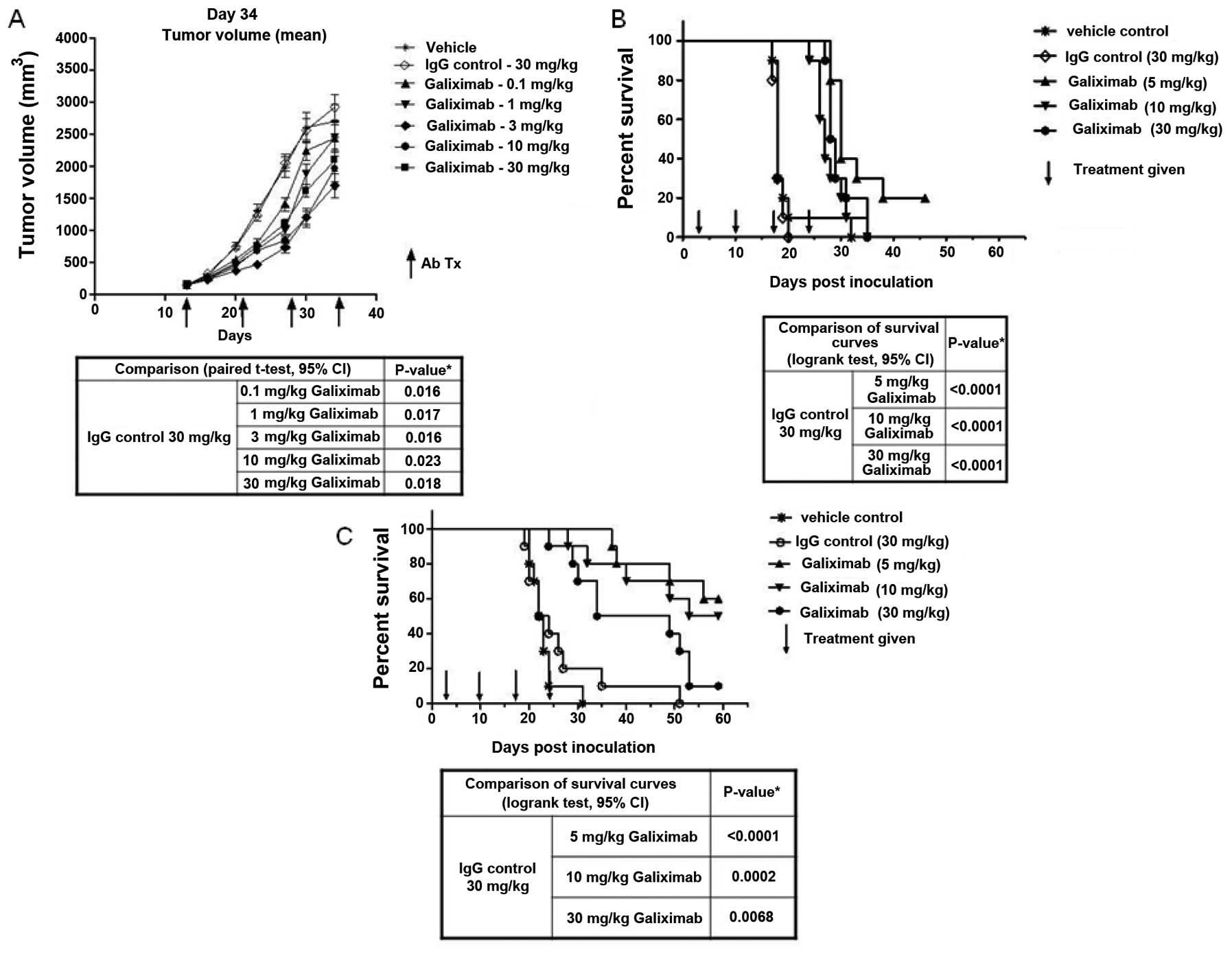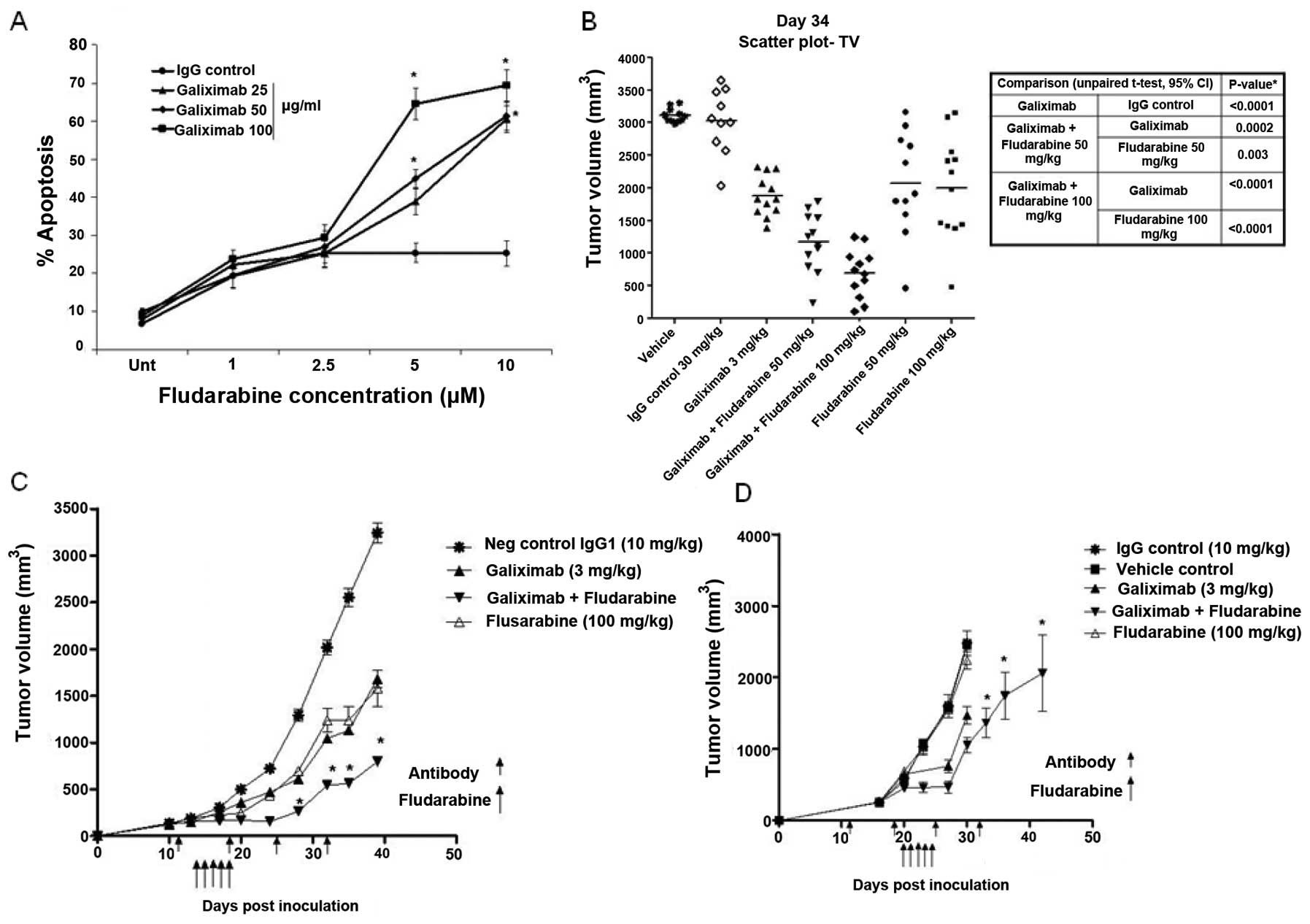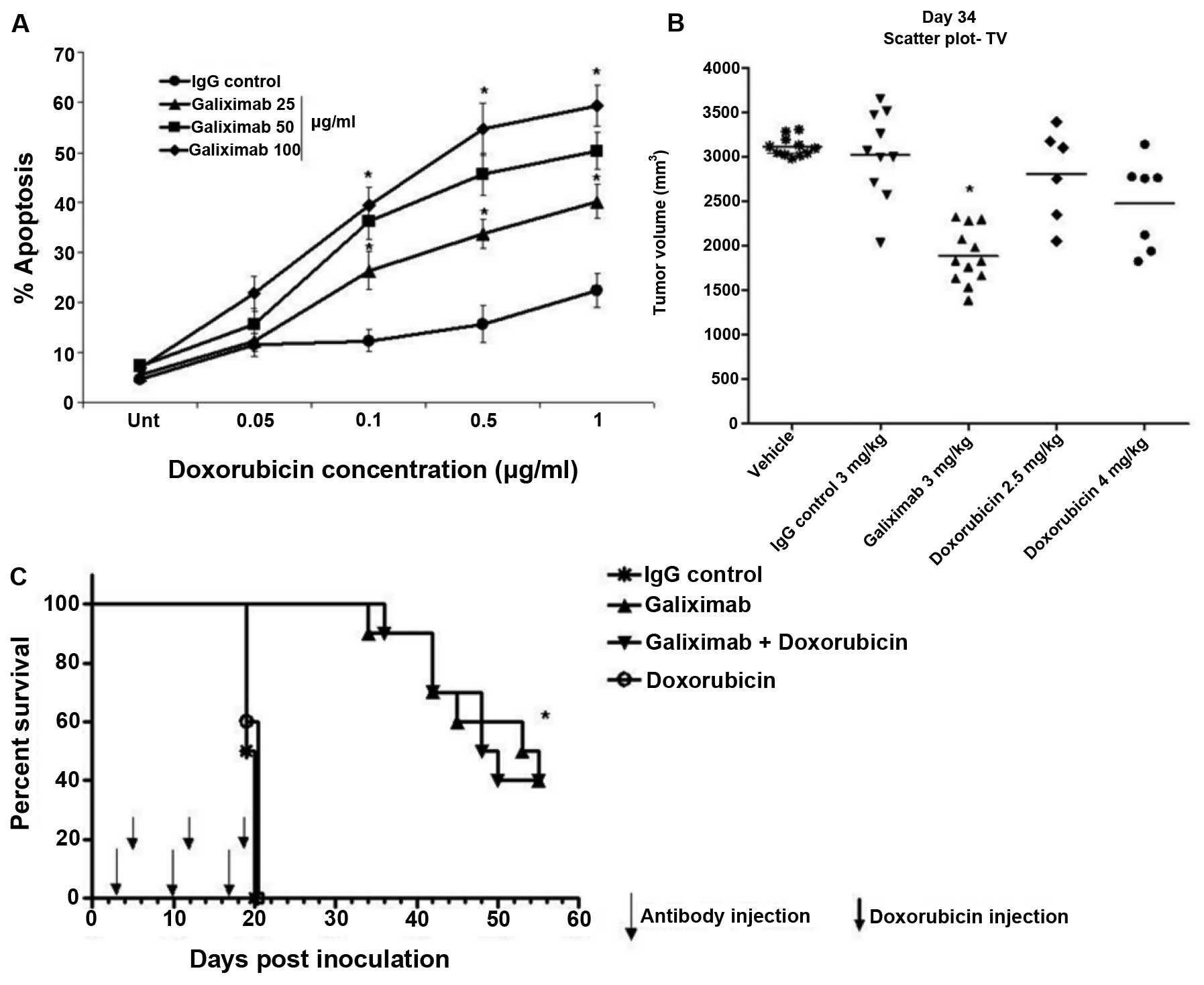Spandidos Publications style
Hariharan K, Chu P, Murphy T, Clanton D, Berquist L, Molina A, Ho SN, Vega MI and Bonavida B: Galiximab (anti-CD80)-induced growth inhibition and prolongation of survival in vivo of B-NHL tumor xenografts and potentiation by the combination with fludarabine. Int J Oncol 43: 670-676, 2013.
APA
Hariharan, K., Chu, P., Murphy, T., Clanton, D., Berquist, L., Molina, A. ... Bonavida, B. (2013). Galiximab (anti-CD80)-induced growth inhibition and prolongation of survival in vivo of B-NHL tumor xenografts and potentiation by the combination with fludarabine. International Journal of Oncology, 43, 670-676. https://doi.org/10.3892/ijo.2013.1986
MLA
Hariharan, K., Chu, P., Murphy, T., Clanton, D., Berquist, L., Molina, A., Ho, S. N., Vega, M. I., Bonavida, B."Galiximab (anti-CD80)-induced growth inhibition and prolongation of survival in vivo of B-NHL tumor xenografts and potentiation by the combination with fludarabine". International Journal of Oncology 43.2 (2013): 670-676.
Chicago
Hariharan, K., Chu, P., Murphy, T., Clanton, D., Berquist, L., Molina, A., Ho, S. N., Vega, M. I., Bonavida, B."Galiximab (anti-CD80)-induced growth inhibition and prolongation of survival in vivo of B-NHL tumor xenografts and potentiation by the combination with fludarabine". International Journal of Oncology 43, no. 2 (2013): 670-676. https://doi.org/10.3892/ijo.2013.1986

















